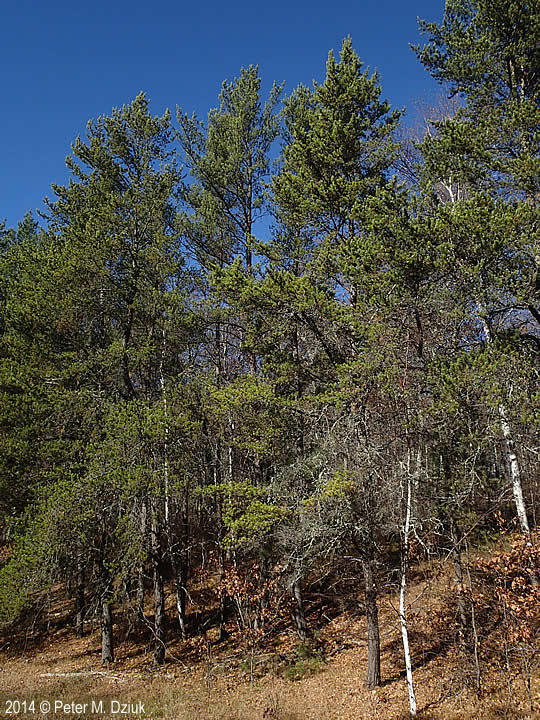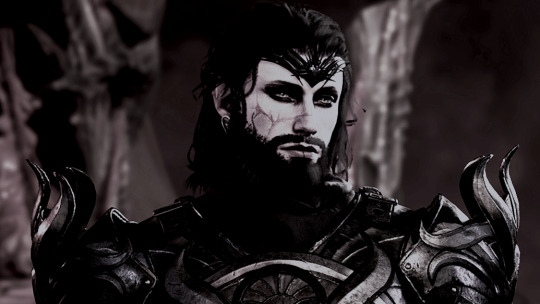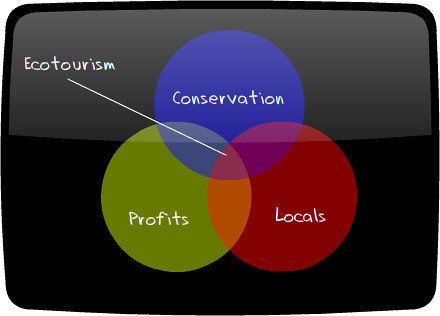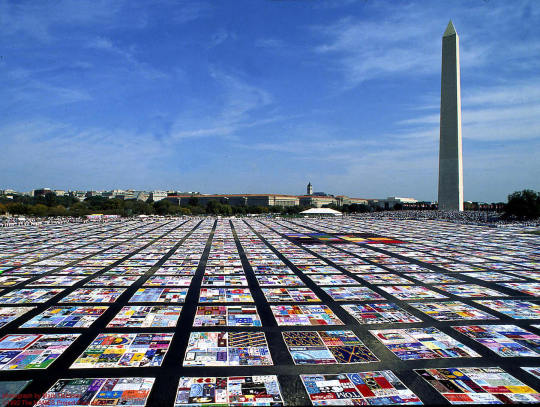#mourning and melancholy
Text
youtube
#Cloud N!mbus#@TUSSINT#Jxde Midnight#ta3nos#CloudNimbus#NimbusCloud#UpintheAir#Purple aesthetic#Purple aesthetic Backgroud#Purple aesthetic music#Purple aesthetic video#Purple Haze#Purple Edits#Purple Hue#Purple Edit#Everything Purple#Ambient TRap Instrumental#Ambient Trap#Alt Rap#Alt Rapper#Alt Rap Type Beat#Alt Rappers#Alt Rap Instrumental#Alt Hip Hop#alternative hip hop#cloud rap#Cloud Rapper#cloud rap Instrumental#mourning and melancholy#Youtube
1 note
·
View note
Text

The Mourning Veil
#https://shadowedaiartistry.tumblr.com/#ShadowedAIArtistry#The Mourning Veil#haunting#ghostly image#melancholy
250 notes
·
View notes
Text

Chap 12. Melancholy Natures, Queer Ecologies by Catriona Mortimer-Sandilands (part 3, final)
Queer Ecologies
‘what it might mean to inhabit the natural world having been transformed by the experience of its loss’?
‘[the queer artist's] natures are not saved wildernesses; they are wrecks, barrens, cutovers, nuclear power plants: unlikely refuges and impossible gardens. But they are also sites for extraordinary reflection on life, beauty, and community’ (344)
AIDS and Other Clear-Cuts
The artist (Jan Zita Grover’s North Enough) writes about moving from San Francisco, where she has worked as a personal caregiver to many individuals who were dying, and died of, AIDS, eventually to the woods of Northern Wisconsin and Minnesota hoping for ‘a geographic cure’ to her burnout and grief. (344)
‘in their persistence [grief, mourning], generate a form of imagination—an awareness of the persistence of loss—that allows her to conceive of the natural world around her in ways that challenge the logic of commodity substitution characterizing contemporary relations of nature consumption” (344)
“The north woods did not provide me with a geographic cure. But they did something much finer. Instead of ready-made solutions, they offered me an unanticipated challenge, a spiritual discipline: to appreciate them, I needed to learn how to see their scars, defacement, and artificiality and then beyond those to their strengths—their historicity, the difficult beauties that underlay their deformity. AIDS, I believe, prepared me to perform these imaginative feats. In learning to know and love the north woods, not as they are fancied but as they are, I discovered the lessons that AIDS had taught me and became grateful for them” (344)
Rather than the landscape of her dreams, the land looks more like a candidate for reclamation. Through Grover’s research we learn that the region is one that been ‘systematically abused: logged several times, drained, subjected to failed attempts at agriculture, depleted, abandoned, eroded, invaded, neglected.”

Jack pines are predominant in the region; tenacious, ‘the first conifers to reestablish themselves after a fire” (16), in their own way remarkable even as they are useless for lumber, short lived, and not at all the sorts of trees about which adjectives like ‘breathtaking’ circulate” (345) they are a loud testament to the violence that has generated them.
“the diminishment of this landscape mortified and disciplined me. Its scars will outlast me, bearing witness for decades beyond my death to the damage done here” (20) But still: the love emerges, painfully, gradually, intimately. (345)
She experiences the landscape in terms of loss and change, rather than idyll and replacement. It is all personal; it is all about developing a way of making meaning that recognizes the singularities of the past and takes responsibility for the future in the midst of intimate devastation. (345)
‘Environmental hubris’—fly fishing, the introduction of non-native fish to the river, changing temperatures of rivers caused by logging and diversion; specific policies, politics, and technologies that have had effects on the rivers, the fish, and the other species throughout the river and the north woods (356)
A refusal to demonize the ‘invasive’ species; Grover herself is ‘invasive’ both culturally and personally (white settlers and big city imports) thus her ethical claim is not for purity but for an active and thoughtful remembering of historical violences in the midst of ongoing necessity of movement and change (346)
Seek relationships with Clear-cuts and landfills in order to bring to the foreground the massive weight of human devastation of the natural world; “a discerning eye can see how unstewarded most of this land has been. The charm lies in finding ways to love with such loss and pull from it what beauties remain” (81) (347)
“she does not romanticize the dying even as she might mourn their loss to the world; instead [through Grover] we witness each loss as particular, irrevocable, and concrete: she is their witness” (347)
Can we learn to see these landscapes as creation as well as destruction?
Rather than mourn the loss of the pristine, she carefully cultivates an attitude of appreciation of what lies before her, beyond the aesthetic wilderness to the intricate details of human interactions with the species and landscapes of the region. In this manner she comes to be able to find the beauty in, for example, landfills and clearcuts; far from naivete or technophilia, this ability is grounded in a commitment to recognizing the simultaneity of death and life in these landscapes, the glut of aspen-loving birds in the clear-cut, the swallows, turkey vultures, and bald eagles near the landfill.

--
It is necessary to face our fear and pain; we have to make room in our relationships with the natural world, queer and otherwise, for the recognition that that is what we might be feeling in the first place (355)
#queer ecologies: sex nature politics desire#queer ecology#queer theory#ecofeminism#critical ecology#environmental politics#ecology#aids crisis#mourning nature#ecogrief#colonialism#environmental degradation#melancholia#queer politics#melancholy#environmentalism#climate and environment#environmental justice#forests
49 notes
·
View notes
Text




𝖆𝖒𝖆𝖛𝖊𝖙 𝖆𝖊𝖗𝖆𝖘𝖚𝖒𝖊 -`. 𝔟𝔤𝔦𝔦𝔦. 𝔱𝔥𝔢 𝔪𝔬𝔲𝔯𝔫𝔦𝔫𝔤 𝔩𝔬𝔯𝔡 𝔬𝔣 𝔰𝔦𝔩𝔳𝔢𝔯𝔶𝔪𝔬𝔬𝔫.
MOON HALF ELF. FIGHTER. ELDRITCH KNIGHT. WIZARD. NECROMANCER. NOBLE. ❦ 𝔰𝔥𝔞𝔡𝔬𝔴𝔥𝔢𝔞𝔯𝔱.
#oc: amavet aerasume#leg.ocs#*myedits#*ocedit#leg.edit#bg3 oc#baldurs gate 3 oc#ch: tav#tav oc#putting him in my pocket and cherishing him coveting him like a dragons treasure mound etc etc#r*haegar core he was always mournful and melancholic 🥀🥹 an air of tragedy surrounded him my poor BOY#his brother rules in his stead in ye olde canon while he’s absent <3#this has been sitting in my drafts for EONS but i am so in love with these *screams*#mourning lord bc of his tragic past OF WHICH I WILL GET INTO 🥀🤧✨#in short his air of melancholy the tragic loss of his dearest his betrothed and other things :’) !!#yana had nothing to do with anything she’s tootally not in his lore either :)#alsoo thinking what if the tragedy was a plot made by s*har?? maybe?#like it would be a PERFECT tie in to sh*adowhearts arc yk????#i did a thought thing in the wee hours of the night but yea!! it would be inch resting i think !!!!!#something something red string *screams*#i love symbolism !!!!!!!#leg? posting at a reasonable hour ?? it’s more likely than you think !!!!!! 🥀🥴✨💀 <3#do not ask him about what happened to his youngest brother he didnt perform a necromantic ritual not realizing his brother was still alive#and mistook thinking he was dead and panicked as it was recently after he lost his beloved so his brother was made reborn bc of it :')#DO NOOT ASK HIM ABOUT IT (i do not have a name for his brother yet but he was the 12th sibling so the youngest of the tall ones!!)
64 notes
·
View notes
Text
I AM NOT ALRIGHT.
Fall of Icarus. Death of Aegeus. Lost of Hylas. Katabasis of Orpheus. Everything about Oedipus, and Antigone and Ismene. Death of Patroclus. Death of Hector. Death of Ajax. Death of Antilochus. Death of Achilles. Cries of Trojan women. Nostos of Odysseus. Odysseus’s love for Penelope. Odysseus’s meeting with Anticlea. Telemachy.
I’VE BEEN SHEDDING TOO MANY TEARS FOR THIS TRAGIC MYTHOS RECENTLY.
(Oh half of my tags aren’t showing cuz I’ve run out of them.)
#greek mythology#tagamemnon#odysseus#icarus#orpheus and eurydice#oedipus#antigone#patroclus#achilles#hector#telemachus#been hyperfixated on greek mythology too much already#it just can’t go normal without tragedies eh?#the looking back of Orpheus is breaking my heart#he went all the way down to the underworld just to bring his wife home#and all hope was lost when he looked back#DO YOU EVEN KNOW HOW MUCH IT HURTS ME???#And when will I ever get over the story of Achilles and Patroclus?#Patroclus why lingered in the battlefield and never returned?#the fall of troy was completely tragic#the brutality of achaeans led to their melancholy nostoi#not to mention how these brutal actions became the nightmare of all trojans#and there’s always the Ithaca royal family#and who mourns for Hector?#lemme know#wait for me#I’m coming to you#yeah and do you know how much of my thoughts have Hadestown and Epic the musical taken over?#90% if not all#sorry if I’m getting too emotional about them I just can’t help it
23 notes
·
View notes
Text

Mourning
158 notes
·
View notes
Text

Charles Rochussen - On the ruins, 1845.
9 notes
·
View notes
Text
imagine ur girl dumps you in 1955 and chet baker drops this
12 notes
·
View notes
Text
Fantasy is what allows us to imagine ourselves and others otherwise; it establishes the possible in excess of the real
The critical promise of fantasy, when and where it exists, is to challenge the contingent limits of what will and will not be called reality. Fantasy is what allows us to imagine ourselves and others otherwise; it establishes the possible in excess of the real; it points elsewhere, and when it is embodied, it brings the elsewhere home.
Judith Butler - Undoing Gender. Routledge; (16 Sept. 2004)
#lacan#psychoanalysis#unconscious#jouissance#lacanian real#freud#lacan unconscious#lacan object petit a desire#real symbolic imaginary#objet petit a#judith butler#fantasy#real#symptom#anxious#anxiety#angst#mourning#melancholia#melancholy#depression#depressed#panic#dread
24 notes
·
View notes
Text



#mine#melancholy#photography#analog#cemetery#headstone#monument#statue#mourning#macabre#death#moody art
31 notes
·
View notes
Text
The Moon Reflected Upon Two Springs by Rubberduckieassassin

The Moon Reflected Upon Two Springs
by Rubberduckieassassin
M, 2k, Wen Ning
Summary: In many ways, this part of Wen Ning’s existence has felt like winter. Winter is the most Yin of all the seasons. It is a time of stillness and quiet reflection. Remembering how to ‘live’ again as best he could.
Kay's comments: A bittersweet look into Wen Ning's life post-canon, he mourning his family and teaching Sizhui about them, while making a home for himself.
Excerpt: One of the walls of his home was decorated with many wooden plaques with names. Most of them were names of his family members that had been murdered in the burial mounds. Others had died during the war or predated the war. No one was around any more to remember their memories aside from Wen Ning.
There is a cenotaph that Wen Ning had made residing in the demon-slaughtering cave of the burial mounds where all the ashes he collected of his family were laid to rest.
Where hundreds of bones are buried underneath the desolate earth.
Sizhui, over time, was learning their names and stories. At times Wen Ning felt sorrow that these name plaques and stories would be the only impressions that Sizhui would have of his Wen family.
post-canon, wen ning centric, wen ning needs a hug, fierce corpse wen ning, gusu lan juniors dynamics, good kid lan sizhui, good kid lan jingyi, adorable juniors, burial mounds settlement days, wen remnants, emotional hurt/comfort, grief/mourning, five stages of grief, melancholy, bittersweet, building a home, family feels, @rubberduckieassassin
~*~
(Please REBLOG as a signal boost for this hard-working author if you like – or think others might like – this story.)
#Wangxian Fic Rec#The Untamed#wangxian#MDZS#Kay's Rec#post-canon#wen ning centric#wen ning needs a hug#fierce corpse wen ning#gusu lan juniors dynamics#good kid lan sizhui#good kid lan jingyi#adorable juniors#burial mounds settlement days#wen remnants#emotional hurt/comfort#grief/mourning#five stages of grief#melancholy#bittersweet#building a home#family feels#Mature#short fic <15k#The Moon Reflected Upon Two Springs#Rubberduckieassassin
29 notes
·
View notes
Text
GRIEF by Oskar Zwintcher.
I imagine the one crushing the stone wants to be understood. And the one under the stone always has to understand, even though he suffers the traumas of loss, loss of love and can't even move enough to heal because he's under the stone of "understanding". So now all that's left is grief. He's always grieving, grieving all that was, all that could've been and most of all grieving the understanding that's constantly talked from him but he never gets to experience.




#fypシ゚viral#writers and poets#poetry#poem#chaotic academia#chaotic academic aesthetic#dark academism#my poem#academia aesthetic#fypシ#oscar zwincher#artists on tumblr#art#painting#clip studio paint#book review#gallerywall#mournful#melancholy
4 notes
·
View notes
Text
Heard someone in my apt parking lot playing Leith Ross’s We’ll Never Have Sex in their car and good god I wasn’t ready for that 💔💔💔
#very feelsy song for me so it hit me like a truck#but it also filled me w joy cuz like WOW other fan of this song??? in the wild?? Amazing!!!#and then I was also like#… is this a sweet or a sad song for u stranger? lol#are you enjoying the beauty of the song#have you found a love so sweet?#or are you mourning not finding such a person?? 🫣#is this a happy appreciation or a melancholy longing#now it’s been stuck in my head all day and I feel like bawling#chatterbun#amazing so tho btw!! give it a listen if u haven’t!!!#*song#an absolutely gorgeous#asexual#anthem lol
2 notes
·
View notes
Text


Chap 12. Melancholy Natures, Queer Ecologies by Catriona Mortimer-Sandilands (part 2)
Mourning and Melancholia
(1915 essay by the same name by Sigmund Freud); mourning and melancholia are reactions to the loss of a beloved object: “both are grave departures from the normal attitude of life” (1984, 252) but with mourning “we rely on its being overcome after a certain lapse of time” (225) in melancholia the ego will not let go, the melancholic internalizes the lost object as a way of preserving it. (334) A loss has occurred, “but one cannot see clearly what it is that has been lost, and it is all the more reasonable to suppose that the patient cannot consciously perceive what he has lost either” (254)(335)
Mourning is thus a process of recognition of beauty as well as an acknowledgement of its extinguishment (things are beautiful because they die) (336)
Melancholy Nature
Ecotourism, wilderness tourist practices are a form of ecosocial ritual by which consumers of ‘vanishing’ nature confirm their own transcendence of nature in the moment of mourning its loss: by understanding nature as something ‘lost’ at the hands of modernity, and by witnessing its demise in the fetishized chunks that are offered up to spectacular consumption by modernity, the victory of the modernity responsible for the loss is confirmed (337)
The temporal logic of this (bourgeois) progressivist narrative is very akin to Freud’s: the position of the present as ‘better’ than the past is achieved through an understanding of loss that assumes the libido will simply ‘move on’, and that also, in this case, assumes that modernity will simply move on from nature even as it memorializes its legacy in parks and monuments (337)
Fetishization and commodification of a lost, romanticized nature—“unspoiled” wilderness—is very important; it is the very quality of nature’s impending extinguishment (buy now or you’ll miss it) that fuels much ecotourism (337)
“Nature” becomes mythic, idyllic, a commodity, a fantasy, a fetish that can be bought to extend the reach of capital rather than critique the relationships that produced the loss in the first place. The idea of a pristine nature on the perpetual verge of destruction is not only a violent rationale for the dispossession of peoples and livelihoods but a seductive fantasy that keeps consumers poised to watch that destruction. (337)

Nature as a fantastic, watchable visitable commodity is a part of modernity (338); the consumption of nature as wilderness is an imposition of one hegemonic relationship—capitalist exchange—into a landscape of many other relationships and intimacies, relationships that are often destroyed in a process of consumption itself. crucially, the fantasy of wilderness is not only infinitely consumable, but infinitely replaceable.
There is lots of evidence of environmental loss but few places in which to experience it as loss, to even begin to consider that the diminishment of life that surrounds us on a daily basis is something to be really sad about, and on a personal level. Non-human beings and particular life filled places are, here, ungrievable in the same moment that their loss (or impending loss) propels their value on the market (338-339)
How does one grieve in a context in which the significance, the density, and even the existence of loss is unrecognized?
Melancholia, pressed into the service of memory—environmental loss becomes something recognizable and meaningful—and grievable

Queer Melancholia
Mourning is a process of accepting that by the loss one undergoes one will be changed, possibly forever (Butler 2004, 21) (340)
Melancholia is a productive response to the twentieth century’s “catastrophic losses of bodies, spaces, and ideals, [and that] psychic and material practices of loss and its remains are productive for history and for politics” (5) (340)
Melancholia suggests a non-normalizing relationship to the past and the world, in which the recognition of the identificatory persistence of loss in the present—loss as self, the fact that we are constituted by prohibition, power, and violence—is central to our ethical and political relationships with others.
Butler writes; grief furnishes a sense of political community…by bringing to the fore the relational ties that have implications for theorizing fundamental dependency and ethical responsibility (2004, 22) (341)
The author makes direct connections to queer activism especially surrounding the AIDS crisis and the catastrophic losses experienced.

“The numbers of deaths are unthinkable’ but ‘the rest of society offers little or no acknowledgment” ; is it not surprising that gay men feel “frustration, anger, rage, outrage, anxiety, fear, and terror, shame and guilt, sadness and despair” but rather that “we often don’t” (Douglas Crimp) Crimp believed that the failure of activism to acknowledge the fact that AIDS is bound up with internal violence as well as external is itself a form of disavowal; “by making all violence external, pushing it to the outside and objectifying it in ‘enemy’ institutions, and individuals, we deny its psychic articulation, deny that we are effected, as well as affected, by it”; Mourning is a vital companion to organizing and melancholia a part of the politics of AIDS. (341)
Cvetkovich; the collective preservation of loss is an ‘archive of trauma’—[…]suggests the acknowledgement of melancholia as a public activity; public melancholy as a form of survival (342)
What might it mean to consider the preservation of a public record of environmental loss, an “archive of ecological trauma”—made up of the kinds of art, literature, film, ritual, performance and other memorials and interrogations that have characterized so many cultural responses to AIDS—as part of an environmental ethics of politics?
What would it mean to consider seriously the environmental present, in explicit contrast to dominant discourses of ecological modernization, as a pile of environmental wreckage, constituted and haunted by multiple, personal, and deeply traumatic losses rather than as a position from which to celebrate their demise by consuming them (and moving on to something else)?
What might it look like to take seriously the fact that nature is currently ungrievable, and that the melancholy natures with which we are surrounded are a desperate attempt to hold onto something that we don’t even know how to talk about grieving? (342)
#queer ecologies: sex nature politics desire#queer ecology#queer theory#melancholia#melancholy#mourning#mourning for nature#ecogrief#aids crisis#queer politics#queer history#grieving#critical ecology#ecofeminism#environmental politics#ecology#loss#queer melancholia
12 notes
·
View notes
Text
espira post everybody fucking duck
If theres one thing i love its taking classic masculine tropes and taking them to their logical conclusions with female characters.... like shes the classic stoic hero trope. the one tear and tough demeanor covering a sensitive heart. And shes also whats left unreported in those movies about said characters.... she has severe depression. Days at a time of lost time and staring at the ceiling. A constant sense of disconnection from reality and her own humanity. (made worse by the realization that she has a dragon soul. like what does that even mean. is that part of why she feels theres a glass wall between herself and everyone else at all times, even her loved ones, a space that she cant reach across? a border shes unable to pass? maybe, she doesnt fuckin know either). The stoicness comes with being constantly misread and thought of as cold and unfeeling. She cant control her facial expressions and they almost always do not match up with how shes actually feeling. She could be in the best mood of her life and the people around her are like. why is she making that face what a bitch. The single manly tear isnt always the single manly tear, sometimes its just impossible to cry. shes wanted to cry a lot, she just cant make herself do it. Her life is a constant battle of trying to break through that glass wall between herself and all other living things. A constant battle of trying to convey how she feels and what shes thinking, but finding it impossible, so after years and years she just chooses to speak about it less, because why bother or give herself hope.
#Being a lesbian is probably the easiest thing about herself. like its not even smthn she thinks abt. shes too busy thinking abt the constant#pillar of glass that stands between herself and all other beings that she cant break and the constant sense of isolation. that and having#the dragon soul#espira#she can be in a room full of people who love her and need her and still feel so hopelessly alone#espira vs the constant feeling of melancholy and mourning of the unlived life: death match#espira: i dont know. i dont even feel like a person. i feel like the vague idea of a person if it was forced into a shape. my body doesnt#feel like my own. in my dreams im flying and everyone is dead and im fine with it. whats wrong with me#her brother riley after just being bitten by a rat: i think i hauve rockjoint
2 notes
·
View notes
Text
Little Boy in the Grass
A mother kneels before a grave, crying over a child that was taken from this world too soon. She was not delicately crying like in movies, but full-on ugly sobbing. The child was her first and only, the one who had taught her the love of a mother. The poor thing had just been buried, and she was the only one left to mourn him. She desperately wished she could see him for one last time, for a proper goodbye, to know if there was anything she could’ve done. She felt a presence behind her and looked up, only to see the child hovering there! She did not know ghosts were real, even when she had desperately hoped they were. He had looked exactly the way he used to, no sickness, no injuries, no anything. It’s almost as if death had made him healthy and playful again. “My darling, is it you?” she asked.
“Mama!” he cried and ran into her arms, or at least tried to. He just ended up passing through her, painfully reminding them both that he was dead, that they can never embrace, and that she can never play with him again.
“My child, I’m so sorry. Was there anything I could’ve done? Was there anything I could’ve done to be a better mother?”
“No mama, you were wonderful and so loving. I died peacefully, and I’m strong and healthy again! Don’t blame yourself, for me. I know it hurts so much right now, that you can’t imagine a life without the pain, but I promise it’ll get better. I promise that one day, you’ll look back on the memories we made together with only joy.”
“But it’s so hard to imagine. I just want to join you…” She looked away.
“No! Don’t ever think that way! I want you to live for both of us, to experience everything that I never got to. Please promise you will, for me.”
She wiped her eyes. “I promise I’ll try.”
The boy smiled and reached for her again. She was able to hold him. “I love you,” whispered the boy.
“I love you too,” she responded. He slowly faded away into little glimmers of light, until her last glimpse of him was his beautiful smiling face.

#my writing <3#my writing#my words#my work#my pride#Sad#melancholy#Death#ghosts#spirits#mourning#Grief#mother and child#mother and son#mother and baby#family
7 notes
·
View notes